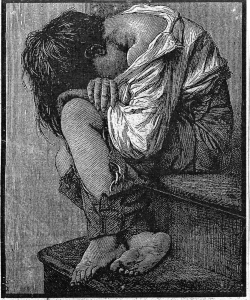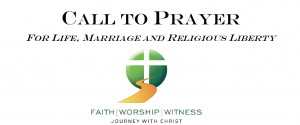 Imagine that you’re standing in front of the throne of the king. You are his child, and you have just been caught, along with your friends, playing cruel tricks on some of the servants. So now you have come for judgment. Your hair and clothes are covered in mud, and you have several cuts and bruises; in the midst of the shenanigans, you had tripped down the stairs and fallen into a puddle outside. You can’t bring yourself to look up at the king, because you know that at this moment his just eyes are piercing your very soul. Hearing his sigh of disappointment makes you wish you could melt into the carpet and disappear. You know what you’ve done and what you deserve, yet your father, the king, doesn’t seem to be in a hurry to give his verdict.
Imagine that you’re standing in front of the throne of the king. You are his child, and you have just been caught, along with your friends, playing cruel tricks on some of the servants. So now you have come for judgment. Your hair and clothes are covered in mud, and you have several cuts and bruises; in the midst of the shenanigans, you had tripped down the stairs and fallen into a puddle outside. You can’t bring yourself to look up at the king, because you know that at this moment his just eyes are piercing your very soul. Hearing his sigh of disappointment makes you wish you could melt into the carpet and disappear. You know what you’ve done and what you deserve, yet your father, the king, doesn’t seem to be in a hurry to give his verdict.
The silence in the room is overwhelming, and you shiver in your damp clothes. Suddenly you can’t stand it any longer. You break from the line of your comrades, sprinting toward the throne, dirty clothes and all, and fall at the feet of the king. “Please daddy,” you sob, “Please forgive me! I’m sorry for what I’ve done and I promise to mend my ways.”
After a moment’s silence you lift your eyes and see that a gentle smile is creeping across your father’s face. “If you are truly repentant, then you are forgiven,” your father says, “And you may go and wash up and come to dinner. But you must also promise not to do this again, and you must go and make amends with each person you’ve offended.”
 You nod solemnly, bow, and leave the room, your step a bit lighter and your head held a bit higher. After humbly apologizing to each of the offended personnel, and agreeing to help with certain tasks around the palace, you climb the steps to your chambers. You both cringe and smile as you take off the filthy clothes, which stick to your body because of the mud from the puddle and the blood from your injuries, but also signify a weight which you will soon be rid of. After a soothing bath, and a half hour of scrubbing the mud from every inch of your body, you notice something shiny sitting on your bed. Upon closer examination, you see a beautiful robe, with a note beside it that reads “For my child who is willing to make amends for his offense. Love, Daddy.” A wave of humility and gratitude sweeps over you, and, holding your breath, you slip on the majestic robe, which falls in gentle folds around your now clean body. With tears in your eyes and joy in your heart, you rush downstairs to go find your fellow comrades and share with them the love, joy and transformation that you have received.
You nod solemnly, bow, and leave the room, your step a bit lighter and your head held a bit higher. After humbly apologizing to each of the offended personnel, and agreeing to help with certain tasks around the palace, you climb the steps to your chambers. You both cringe and smile as you take off the filthy clothes, which stick to your body because of the mud from the puddle and the blood from your injuries, but also signify a weight which you will soon be rid of. After a soothing bath, and a half hour of scrubbing the mud from every inch of your body, you notice something shiny sitting on your bed. Upon closer examination, you see a beautiful robe, with a note beside it that reads “For my child who is willing to make amends for his offense. Love, Daddy.” A wave of humility and gratitude sweeps over you, and, holding your breath, you slip on the majestic robe, which falls in gentle folds around your now clean body. With tears in your eyes and joy in your heart, you rush downstairs to go find your fellow comrades and share with them the love, joy and transformation that you have received.
Every one of us has found ourselves in the place of this child countless times. You’ve made mistakes. You’ve sinned. You’ve hurt yourself, others and God. You’ve humbly confessed your sins before God and man, and you know that Your Father and Friend has forgiven you. But it can’t stop there. We must strip ourselves of those dirty clothes which hold us to our crimes, and get rid of all the dirt related to that occasion of sin. In other words, we have to actively prove that we acknowledge our wrongdoing and will strive not to commit the same mistake again. In our time we have a more common name for this action: penance.
When people first think of penance, images of barefoot monks or old ladies on their knees may come to mind. However, penance is much more beautiful than sheer physical mortification and much deeper than the 3 Hail Marys the priest asks you to say as a penance after Confession. These are the concrete means which express much more profound dispositions of the heart. In its essence, penance is the act we perform face to God and men to show that we are truly sorry. Penance demonstrates the new attitude with which we promise to try to live from now on. The purpose of penance isn’t to tear us down; it is to help us conquer sinful habits and build a more virtuous heart and life.
When speaking of the need to rid oneself of sin, St. Philip Neri writes that “a person must strip himself of the filthy skin of sin, painful though such a stripping may seem to be; and we shall not feel the pain if we seriously consider that, as soon as we are stripped of this foul covering, we are clothed with a royal and imperial garment…as a result of this we are not only to despise gold, and silver, and pleasures, and all that is vainly and ignorantly prized by the blind and beguiled world, but we are to give our life itself, which we love so much, for the honor of God, and for the salvation of our neighbors” (Letters of St. Philip Neri). Penance is this painful yet beautiful process by which we strip ourselves of sinful habits and, with God’s grace, receive a royal robe which is our progression towards holiness. And as icing on the cake, God makes penance in such a way that we can offer our transformation for the honor of God, and for the salvation of our neighbors.
 After seeing all of this, one may ask, “So, this whole penance thing has beautiful, inspiring foundations and motivations. But how does this play out in real life? Sure, everything worked out for the child in the story, who made amends, received a beautiful robe as a gift from the king, his father, and went out to bring the joy of forgiveness to the hearts of his friends. But what about me? I know that I’ve messed up plenty of times, that I have areas of my life that I need to work on, and that the people around me, and even my country as a whole, have some serious faults. But what can I do to do penance for myself and others?” Fortunately for us, we are not alone in our ponderings, and many have raised similar questions. In response to this, and in light of the Year of Faith and this time of Lent, the US Conference of Catholic Bishops has started an initiative by the name of “Call to Prayer: Pledge to Fast.” It states the following:
After seeing all of this, one may ask, “So, this whole penance thing has beautiful, inspiring foundations and motivations. But how does this play out in real life? Sure, everything worked out for the child in the story, who made amends, received a beautiful robe as a gift from the king, his father, and went out to bring the joy of forgiveness to the hearts of his friends. But what about me? I know that I’ve messed up plenty of times, that I have areas of my life that I need to work on, and that the people around me, and even my country as a whole, have some serious faults. But what can I do to do penance for myself and others?” Fortunately for us, we are not alone in our ponderings, and many have raised similar questions. In response to this, and in light of the Year of Faith and this time of Lent, the US Conference of Catholic Bishops has started an initiative by the name of “Call to Prayer: Pledge to Fast.” It states the following:
U.S. Bishops are encouraging Catholics throughout the country to offer their Friday acts of sacrifice and penance, and particularly to abstain from meat and fast on Fridays until Christ the King Sunday (November 24, 2013), for the intention of the protection of Life, Marriage, and Religious Liberty. Answer this call to prayer, penance, and sacrifice by making a pledge to abstain from meat and to fast on Fridays. Sign your name to the online pledge and join your spiritual and bodily sacrifice with others in the Church for these intentions (www.usccb.org/fast).
This initiative is a beautiful, concrete way to do penance in reparation both for our own sins and for those of our country, and to unite ourselves in prayer and sacrifice to our brothers and sisters in the universal church. Let us join together in ridding ourselves of the vices and sins which lie heavy upon the backs of all mankind, and so receive the royal robe of grace and love which Christ, our Father and King, bestows on his children when they return to him with humble and repentant hearts.
